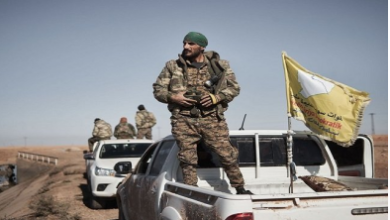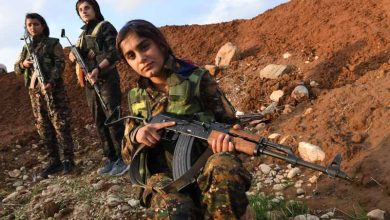The International Convention for the Protection of All Persons from Enforced Disappearance is a United Nations international human rights treaty designed to prevent the enforced disappearance of persons and defined in international law as a crime against humanity. The resolution was adopted by the UN General Assembly on December 20, 2006 and signed by the Secretary-General on February 6, 2007. It became law on December 23, 2010, which was signed by 96 countries in August 2017 and ratified by 57 countries.
Iran Kurdistan Human Rights Watch has obtained information showing that a significant and, of course, thought-provoking number of Iranian Kurdish children (all of whom were under the age of 18) have been subjected to international human rights treaties and have been subjected to “forced disappearances”.
Our research shows that these children were considered recruits by the PKK and its Iranian branch called PJAK, as well as its Syrian branch called PYD with a military branch called the YPG.
Various, diverse and unusual tactics, such as making promises such as working outside of Iran, immigration, and in some cases focusing on the problems and vulnerabilities of these children, such as some of them being children of divorce or their parents being poor or addicted were used to recruits these minors. After being recruited into the ranks of the militias, the group took them to the battlefields in Syria, Iraq or Turkey.
Due to their young age and lack of recognition of political and military issues, these children have not had the opportunity to escape or resign from the group, and unfortunately, there is no accurate information about their recruitment, which in some cases has been more than 15 years.
Some PKK and PJAK media outlets have reported that these children were killed on the battlefield and in clashes with the Turkish army or in Syria, but there is no evidence as to whether they were actually killed or something else happened to them. Bodies of fallen recruits have not been returned to the families, and when asked, PJAK and PKK remain quiet of burial places.
The information obtained by the Iranian Kurdistan Human Rights Watch was collected by some colleagues of lawyers and human rights activists, and investigations were carried out from their place of birth. In some cases, a number of former PKK members were also found, which have cooperated in providing more information concerning the fates of these children inside the group.
In this regard, the investigation of Iranian Kurdistan Human Rights Watch, in Iran, will continue and the information that will be obtained and verified will be published for public information.
In the first place, the Iranian government is expected to take responsibility for this rare and unfortunate event that has occurred to Iranian Kurdish citizens and to make the necessary follow-up routine.
The “Iraqi Kurdistan Regional Government” is also expected to cooperate, given that most of these children have gone to the Iraqi Kurdistan Region and disappeared in that area, free from political controversy and solely on the basis of human responsibility and adherence to the International Convention, to determine the fates of these children.
Many of the families of these children have been interviewed in the investigations of the Iranian Kurdistan Human Rights Watch and, of course, expressed that they are very concerned about the situation of their children. Most of these families do not believe this when they are informed by the media of this militant group that their children were killed during the military conflict, and they call for the formation of a “fact-finding committee”, so they ask international organizations to cooperate and accept a mediating role in this formation.
Also, we ask for human rights assistance to take a responsible role in this war crime against humanity.
Iranian Kurdistan Human Rights Watch urges PKK and PJAK officials to refrain from recruiting children to the ranks of their militias, regardless of political challenges with various Middle Eastern governments, and act solely on moral and human responsibility in their process of recruitment.
And, as has been the case in recent years, at the UN Headquarters in Geneva, PKK officials have signed deeds with UN officials that it will no longer use children, and that it will immediately bring all the children among them to the attention of UN officials. Nationals from Iraqi Kurdistan and Syria are to be handed over to their families according these deeds.
Also, IKHRW requests a same sort of deed will be signed for the Iranian Kurdish children in their ranks, so they can be returned to their families.






